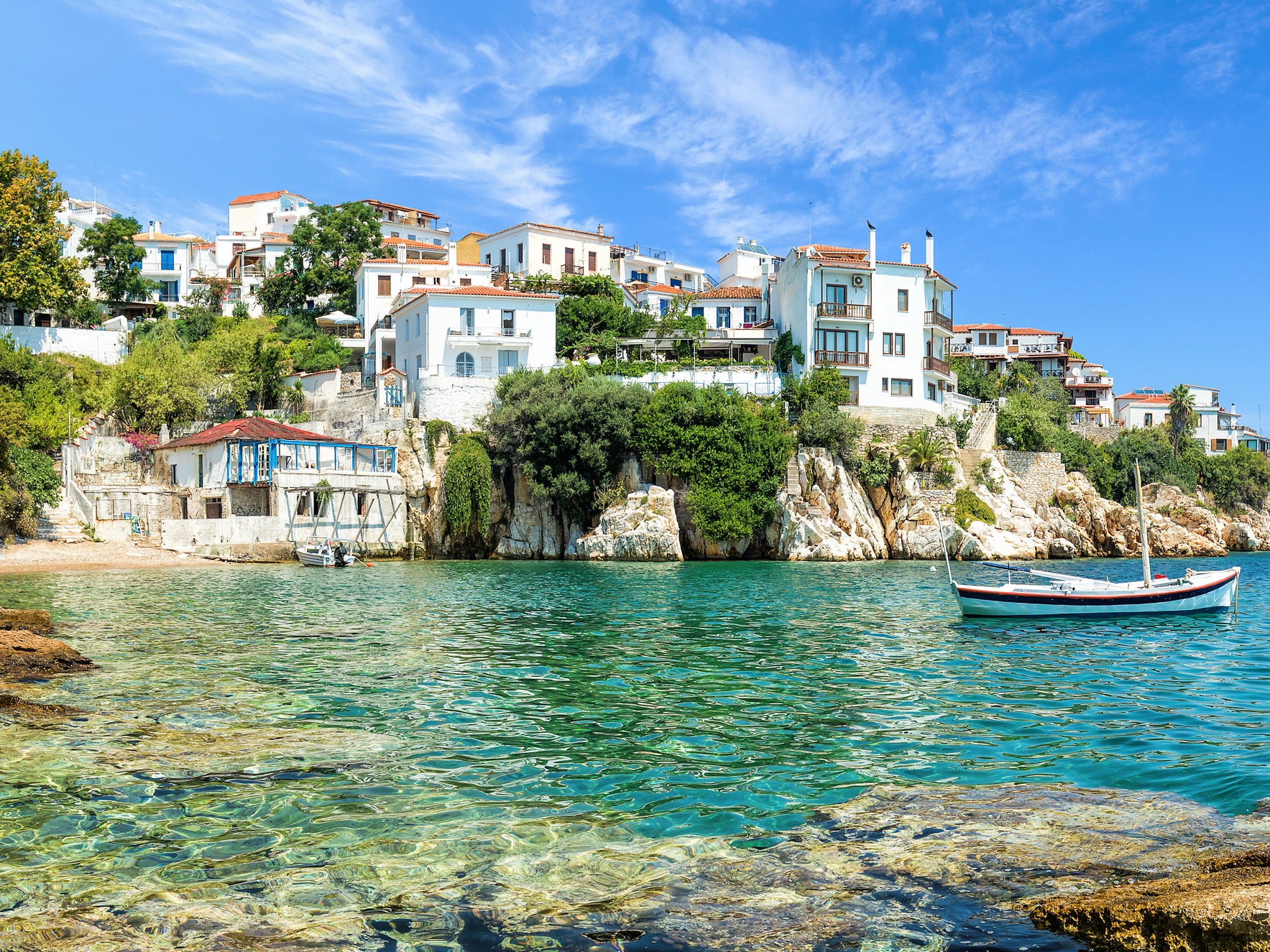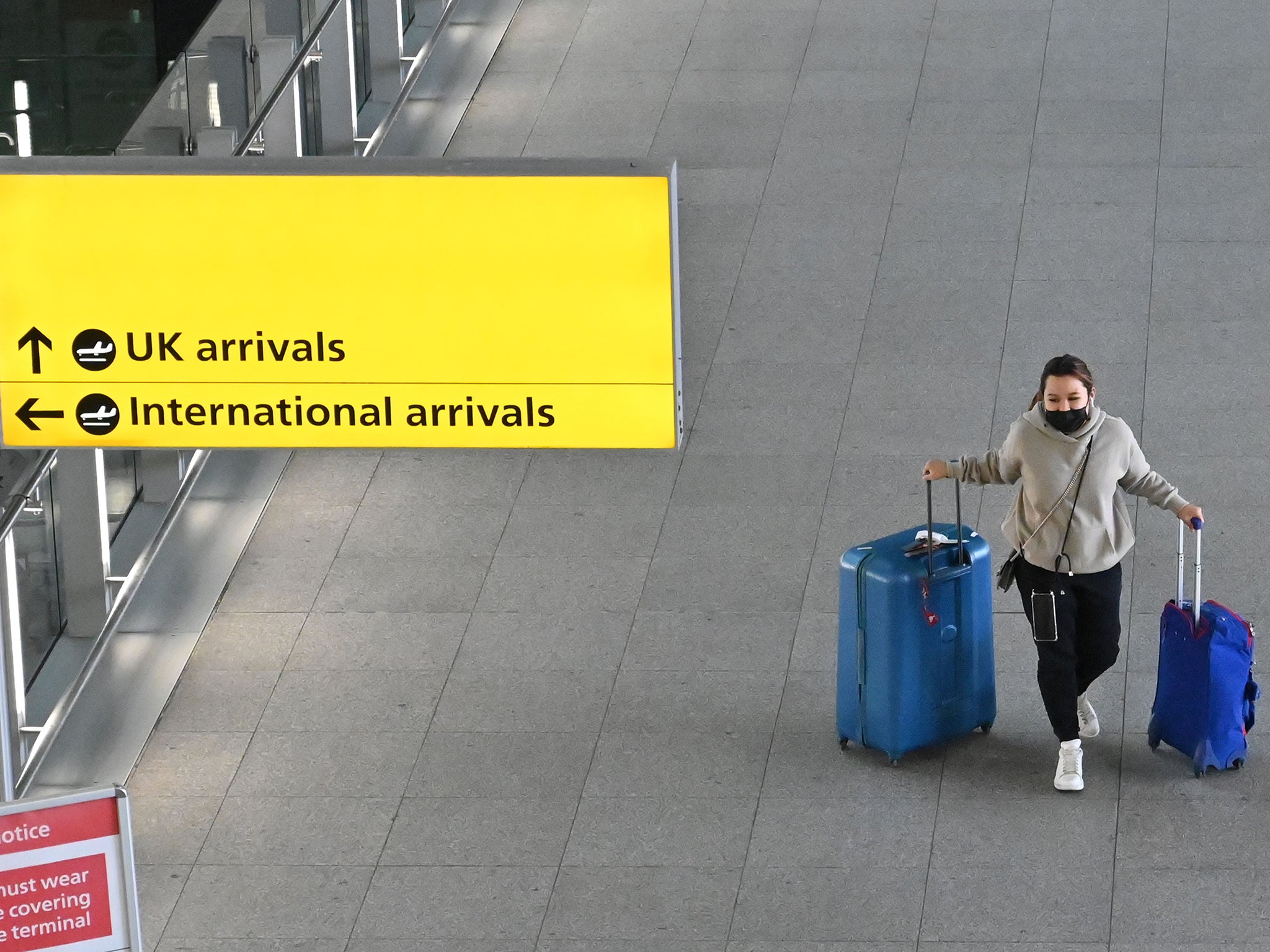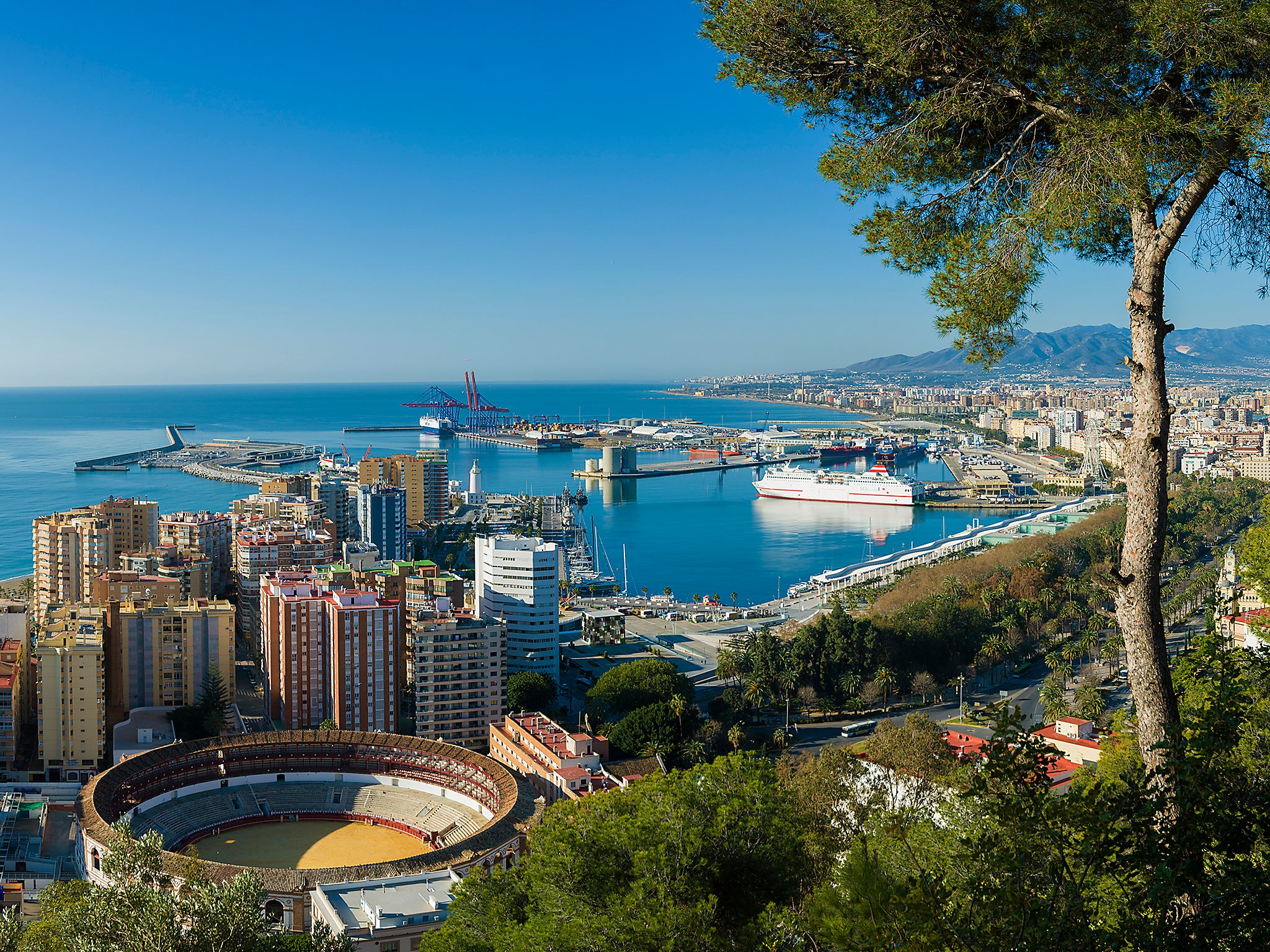Should we go through with our holiday to Skiathos?
Simon Calder answers your questions on upcoming summer trips as well as navigating the many travel restrictions and changing traffic light system


Q We are booked on a Jet2 holiday to Skiathos on 1 September. Of course we would love to go. But as a couple in our seventies, we are conflicted both about whether it is responsible to go and worried about the expense of tests and debilitating queues at the airport. We booked last October in good faith feeling sure things would be better by now. But we are not going to be getting the relaxing, trouble-free experience we signed up for.
The holiday firm is not so far letting us postpone to next year. We will go reluctantly if we are not allowed to postpone but it seems sad that we are forced into doing so. Do our views stand for anything as far as rights and responsibilities are concerned?
Kate D
A Your holiday looks very well-timed. The Greek islands are at their best in September, in my opinion, without the heat and crowds of peak summer, but with every prospect of warm sun and sea. If I may, it was an interesting decision to book 11 months in advance for an off-peak holiday; I am looking forward to going to Greece in September but will be booking perhaps a week ahead. For future trips, if you are not constrained to peak season, you might want to do the same.
Anyway, we are where we are – and my advice is to celebrate the opportunity to travel. There is certainly an annoying amount of bureaucracy: you must complete a Greek online passenger locator form by 10pm British time the day before you wish to travel out. Coming home, you must take a test before flying home and pre-book a PCR test for after you arrive before you can complete your UK passenger locator form.
The returning holidaymakers I have talked to think those hurdles are worth crossing for the joy of travelling abroad. You would certainly be at lower risk on Skiathos than in the UK due to the much lower levels of infection. While there is certainly some risk associated with the journey, it is mostly in the airports; by September the queues should be shorter.
I am sorry the holiday company appears to be uncompromising, but I hope you have been told of your right under the Package Travel Regulations to assign the holiday to someone else (usually friends or family) for a nominal amount – usually £50 or so per person. In your position, though, I would be packing already for the trip.

Q Some European countries allow their citizens returning from high-risk countries to self-isolate at home instead of having to pay an exorbitant amount for a hotel quarantine. I live alone and I don’t have family in the UK. If I want to see my elderly mother again, who lives in a red-list country, I would have to spend money that I don’t have.
A lot has been made of people going on holiday and making it easier and cheaper for them, but please think of those of us who want to travel for family reasons. Do you think the government could consider following the same policy as, for example, France?
Pat Serra
A Since February 2021, the government has insisted that travellers from countries designated high risk should go into a “Managed Quarantine Facility” on arrival in the UK for 11 nights. This is regarded as much more secure than self-isolation at home. The stay must be booked in advance. For a single adult, the cost is £1,750 currently; from Thursday, it will increase to £2,285, because at present the taxpayer is subsidising the cost; the UK government says it will “better reflect the increased costs involved with providing their quarantine, including transport to the hotel, security, provision of welfare services and the two PCR tests which must be taken on day two and day eight of the stay”.
All of which is very annoying and, I imagine, bordering on punitive for you and thousands of other people whose journeys are emotionally essential.
The best way to avoid paying an exorbitant amount for hotel quarantine is to go to a third country on the amber list or green list that you can happily live in and enjoy for a lot less than the price of 11 nights in some grim airport hotel.
The lowest costs are likely to be in Bulgaria or Romania, where it is possible to live comfortably for £50 a day including three good meals and decent accommodation – for barely a quarter of the increased hotel quarantine cost. Portugal, Spain, Malta and Greece also look good candidates, although they are not so economical.
If it is of any comfort. I believe that the whole highly questionable traffic light system will be shelved by autumn, with travellers who have been fully vaccinated able to travel in from almost anywhere with no obligation to quarantine – though with a rigorous testing regime still in place.

Q I am going to Spain. Is it at risk of red-list status? And, coming home, will lateral flow tests still be accepted as a pre-departure test? The comments of the transport secretary have confused things. My understanding is that we are being urged to take a PCR, but this is not mandatory. Do I have this correct? I don’t want to get turned away by the airline if we present with a lateral flow result at the airport.
Mike C
A I believe that the possibility of Spain going onto the red list any time soon – and in particular during August – is vanishingly low. As mentioned in my answer yesterday to a question about red list travel, I sense we are moving towards a new regime for autumn when the traveller will become the important element, instead of geography. Rather than “where have you travelled from?,” the principal will be: “have jabs, can travel (though with comprehensive testing)”.
The possibility of a tougher regime for travellers from Spain was certainly considered by ministers for the latest traffic-light review that took effect this weekend. The concept of an “amber watchlist” (one step away from the red list) or continuing the curious “amber plus” category was eventually dismissed. However, in the latest awkward compromise involving government decisions on travel in the time of Covid, the transport secretary, Grant Shapps, is asking British travellers from Spain to upgrade their test before travel. As you say, we are being urged to undergo an expensive and slow PCR test rather than a swift and cheap lateral flow test.
While I am happy to highlight his request, a traveller acting purely out of self-interest will always choose a lateral flow test for return to the UK. PCRs are significantly more expensive and add stress because the results are slow. Anyone who has recently recovered from Covid but who is no longer infectious should in any event use a lateral flow device (LFD) test, the government says.
“LFD tests have a lower sensitivity than PCR or Lamp tests, so they are less likely to return a positive result from a historic infection,” is the NHS advice.
You will not be turned away at the airport: even though the government claims nine out of 10 British travellers from Spain opt for an expensive and cumbersome PCR test, this is voluntary and you will not be at a disadvantage if you choose a lateral flow test.
Email your questions to s@hols.tv or tweet @simoncalder


Join our commenting forum
Join thought-provoking conversations, follow other Independent readers and see their replies
Comments